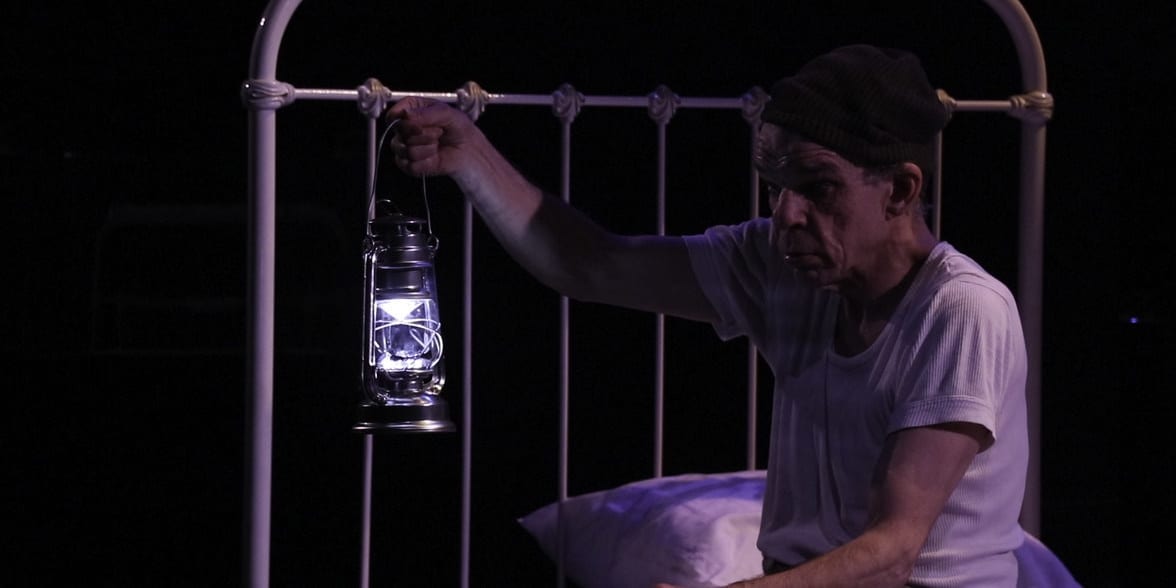From the entrance a man appears in a light halo – Denis Lavant. The actor doesn’t play a role, instead he borrows words from a great twentieth-century Romanian poet Marin Sorescu and from Fragments of a Journal by Ionesco. The chosen pieces are willingly introspective. The vision is both clear and windowless – looking into the night that fails to understand the day. We are not sure if the actor relies on the spirit, on us, or perhaps on God. With a pianist and two percussionists, they form a quartet allowing music to lead us to a dream that actually looks more like a nightmare.
The protagonist suffers from insomnia and anxiety, alone in his bedroom (a bed, two trunks, some keepsakes and a few chairs), he reads from a black notebook. He does not live in the present, he is somewhere else in the dreams of the past. So, he cracks up, running to the sound of the piano around the bed and then making faces at the audience. The percussion instruments surround him like shadows in a dream.
‘Words create confusion. Words are not speech. But these words were like masks, or else like dead leaves fallen to the ground’ reads Fragments of a Journal, written by Ionesco.
What he wants to find is paradise, which means his childhood – a time during which death did not exist. Remain oblivious and ignorant. For ignorance it’s too late, for oblivion it’s too early. Yet here we are, in front of an infinitive mise en abyme of dream in which the body floats still strong and excited for the recollection of his youth.
Il faut donc que vous fassiez un rêve is an original and cryptic composition made by a quartet from Ionesco’s and Sorescu’s writings. Without any knowledge about the protagonist we wander with him through the delights and vertigo of abyss and dream, all the time struggling with a self-awareness that never stops. Night and dream both other a fragile refuge; they are alienating but essential.

